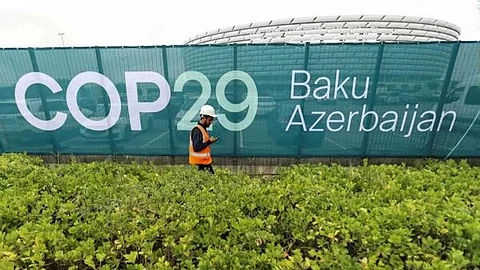
- Home
- Live Blog
- Breaking News
- Top Headlines
- Cities
- NE News
- Sentinel Media
- Sports
- Education
- Jobs

BAKU: Seventy-eight NGOs, including Save Soil, 4per1000, and SEKEM, on Tuesday endorsed a policy recommendation document to be presented to the UNFCCC at the ongoing UN climate conference (COP29), which is focused heavily on securing a new climate finance target for countries most vulnerable to climate impacts, calling on the Convention to facilitate access to climate finance for farmers to restore soils.
The key policy recommendations include making climate finance accessible to farmers for adopting regenerative agroecological practices, increasing climate finance allocation to farmers for creating carbon sinks in farmlands, developing supportive policies and infrastructure for adopting sustainable land practices, mobilizing private investment into soil regeneration, and integrating soil restoration into climate finance strategies.
The pivotal policy recommendations aim to empower farmers and foster soil restoration.
Regenerative agroecology refers to various types of agricultural practices like regenerative agriculture, agroecology, and sustainable soil management systems that increase organic matter and life in agricultural soils.
It supports biodiversity, carbon sequestration, ecosystem restoration, and healthier food systems and contributes to global climate resilience.
To address this, the policy recommendations released by leading NGOs advocate making climate finance accessible to farmers, enabling them to shift to regenerative agroecology, improve soil health, sequester carbon, and secure food systems while building climate resilience and supporting biodiversity.
Degraded soils are now significant carbon emitters, exacerbating global warming. As the FAO projects, 90 percent of the earth's topsoil is at risk of degradation by 2050 due to unsustainable farming practices. Today, billions of people are impacted by land degradation, driven largely by monocropping, excessive chemical use, and soil disruption practices.
If supported to transition, agricultural soils could become active carbon sinks, offering one of the most effective climate mitigation strategies available. (IANS)
Also Read: Arunachal Pradesh Governor Parnaik Exhorts Youth to Embrace Fish Farming for Sustainable Development
Also Watch: